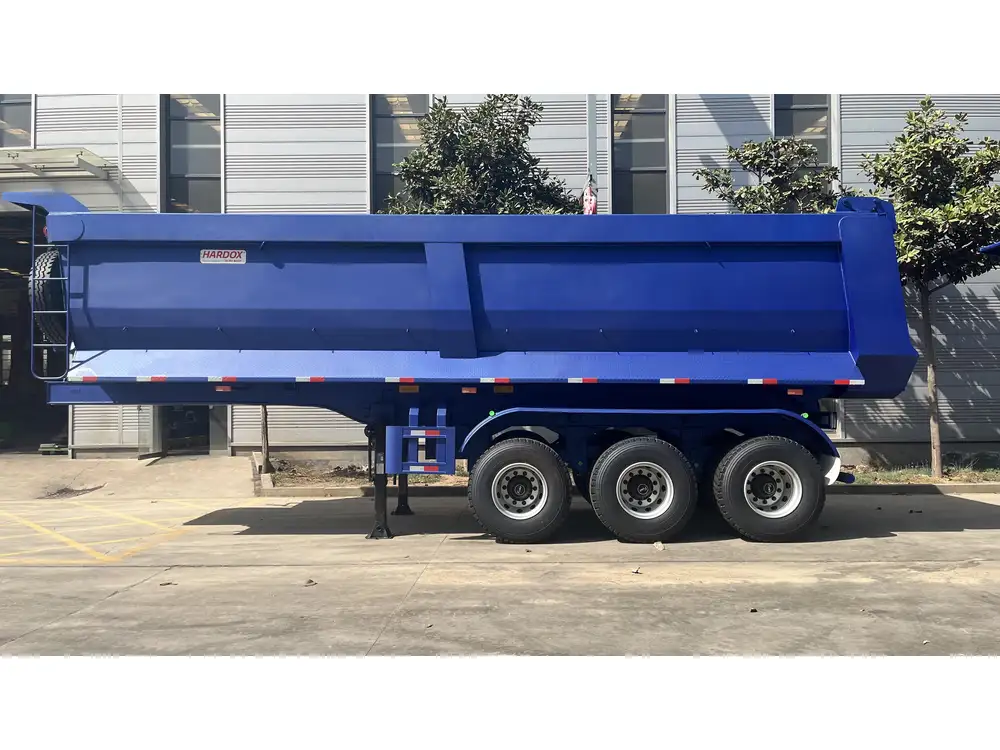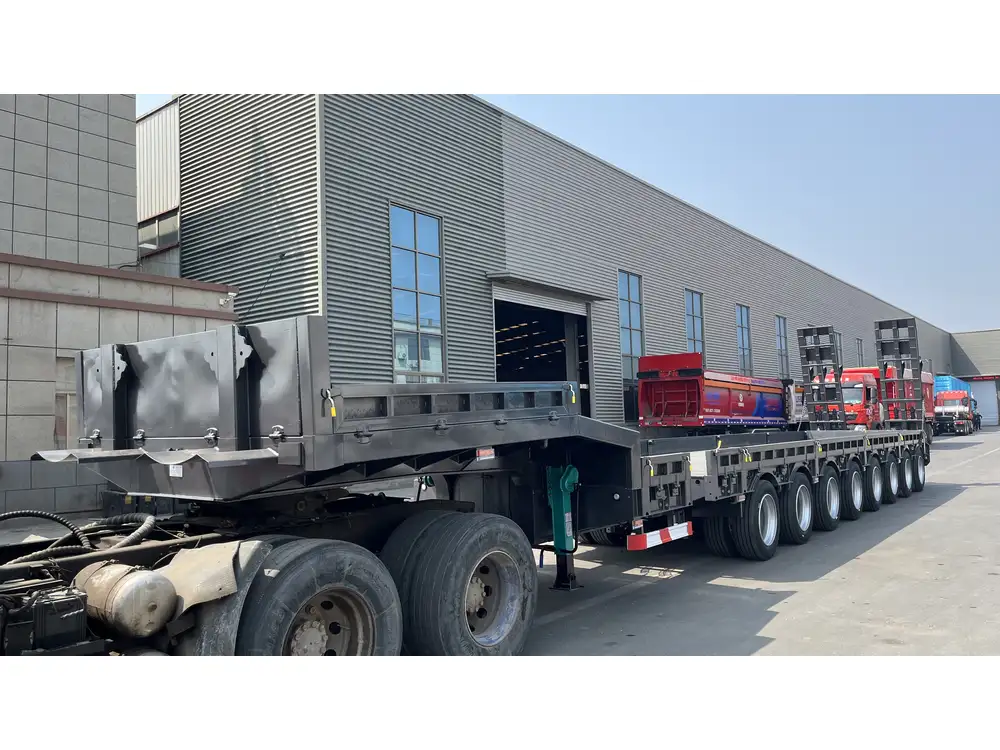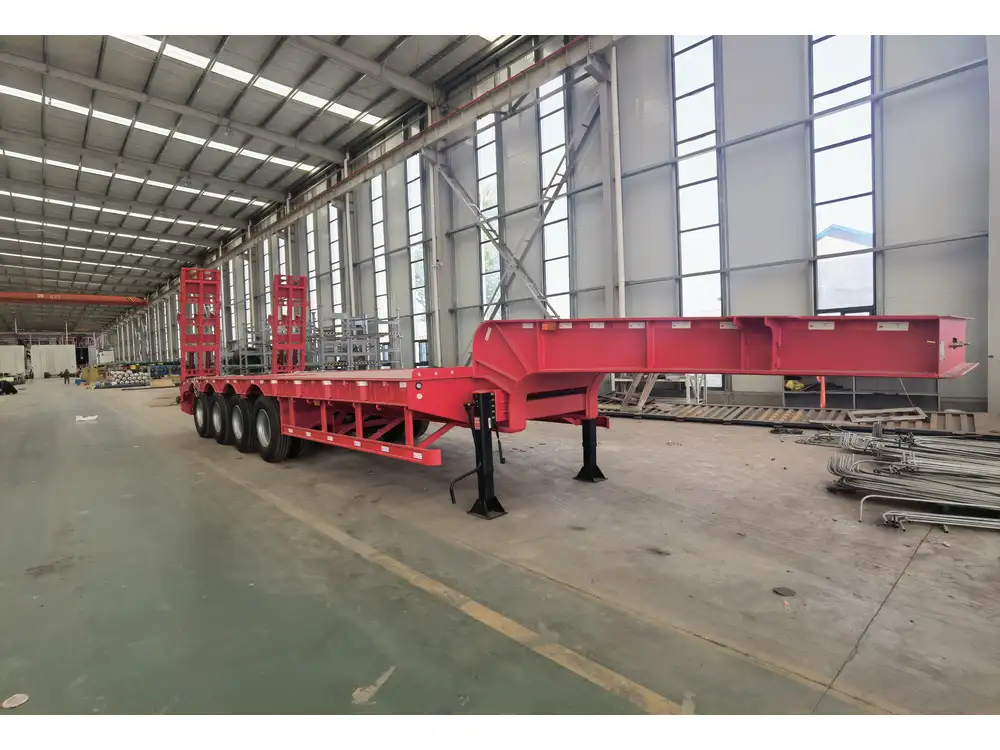In the realm of logistics and transportation, tanker trailers hold paramount importance. These specialized vehicles are designed for the safe and efficient transportation of liquids, be it fuel, chemicals, or food-grade products. However, potential buyers often find themselves grappling with the question, How much is a tanker trailer? This inquiry leads to a multitude of factors that influence the final cost. In this article, we will dissect the various elements that contribute to the pricing of tanker trailers, offering insights that aid in making informed purchasing decisions.
Understanding Tanker Trailers: An Overview
Before diving into the financial aspects, it’s crucial to grasp what tanker trailers are. These trailers come in various types and sizes, each tailored to specific needs. Broadly speaking, tanker trailers can be categorized into several types, including:
| Type of Tanker Trailer | Description |
|---|---|
| Fuel Tankers | Designed to transport petroleum products. |
| Chemical Tankers | Built to carry hazardous chemicals safely. |
| Food-Grade Tankers | Manufactured with materials suitable for food transport. |
| Water Tankers | Used for transporting potable or non-potable water. |
| Vacuum Tankers | Designed for suction-based operations, like septic waste. |
Understanding these variations is vital, as each type will have different features and costs associated with them.
Key Factors Influencing the Cost of Tanker Trailers
The price of a tanker trailer is not solely dependent on its type but is influenced by several critical aspects. Here’s a breakdown:

1. Size and Capacity
Tanker trailers vary significantly in size—from compact designs holding a few thousand liters to larger units capable of carrying upwards of 40,000 liters. The capacity directly correlates with the price; larger tanks generally command higher costs due to the materials and engineering required.
2. Material Construction
The materials used in constructing the tanker are a significant determinant of cost. Common materials include:
- Aluminum: Lightweight and resistant to corrosion; typically used for fuel tankers.
- Stainless Steel: Offers superior durability and is often used for food-grade or corrosive products.
- Carbon Steel: Generally cheaper, but may require additional coatings for safety with certain liquids.
3. Type of Liquid Transported
The nature of the liquid being transported impacts the design and safety features of the tanker trailer. For instance, trailers meant for hazardous materials will need additional safety equipment, such as enhanced insulation or reinforced structures.

4. Manufacturing Standards and Compliance
Different industries have regulatory requirements that necessitate specific manufacturing standards. Trailers used for food products must adhere to stringent food safety regulations, which can increase costs. Compliance with regulations such as DOT (Department of Transportation) or EPA (Environmental Protection Agency) can also exceptionally influence the overall cost.
5. Customization and Features
Customization options can be vast, and they come at varied price points. Features such as:
- Insulation: Necessary for temperature-sensitive liquids.
- Pumps and Valves: Essential for efficient loading and unloading capabilities.
- Heated Tanks: Important for certain substances, significantly driving up costs.
6. Brand and Manufacturer Reputation
Reputable manufacturers may charge a premium due to their track record of quality and reliability. Investing in a well-known brand can lead to lower maintenance costs and a better resale value.

7. New vs. Used Tanker Trailers
The choice between new and used tankers dramatically affects pricing. While a new tanker trailer may range from $30,000 to over $150,000, depending on its specifications, used trailers can often be found at significantly lower prices. However, the condition, age, and compliance status of used trailers must be thoroughly assessed.
8. Additional Costs
Several secondary costs should be factored into the total price. These include:
- Insurance: Protecting your investment is critical; insurance rates vary based on the tanker type and use.
- Maintenance and Repairs: Regular upkeep is necessary for safety and compliance.
- Transportation Costs: If purchasing from a distant supplier, consider the expense of transporting the unit.
Average Pricing Overview
While the specific costs of tanker trailers can vary widely based on the above factors, here are some ballpark figures to consider:
| Tanker Trailer Type | Average Price Range |
|---|---|
| Fuel Tanker | $30,000 – $150,000 |
| Chemical Tanker | $40,000 – $120,000 |
| Food-Grade Tanker | $50,000 – $160,000 |
| Water Tanker | $20,000 – $70,000 |
| Vacuum Tanker | $40,000 – $120,000 |
These ranges serve as a guideline; potential buyers should conduct extensive market research and obtain multiple quotes.

Evaluating Your Needs: A Decision-Making Framework
Determining the right tanker trailer for your business requires a well-structured evaluation process. Follow these steps to ensure you make the best choice:
Step 1: Assess Your Transportation Requirements
- What liquids will you transport?
- What volumes do you need to handle?
- Are there specific regulatory requirements for your industry?
Step 2: Establish Your Budget
- What is your price range?
- Consider both initial purchasing costs and ongoing expenses (maintenance, insurance, etc.).

Step 3: Research Potential Suppliers
- Look for manufacturers with a robust reputation.
- Request quotes and compare features, warranty terms, and customer service offerings.
Step 4: Review Customization Options
- What specific features do you need for efficient operations?
- Are there optional upgrades that could improve safety or usability?
Step 5: Make an Informed Decision
- Based on your evaluations, select the tanker trailer that best suits your needs.
- Consider scheduling a visit to the manufacturer or a dealer to examine potential options in person.

Hiring a Professional for Installation and Maintenance
Once you have acquired a tanker trailer, the next critical step is ensuring it meets operational standards through professional installation and ongoing maintenance. This is especially important for features such as:
- Pumps and valves that need to be installed correctly to avoid leaks.
- Safety equipment that must be compliant with local regulations.
A reputable service provider can also offer insight into regular maintenance schedules, ensuring your tanker operates optimally and safely over its lifespan.
Conclusion: Making Your Investment Wisely
Investing in a tanker trailer can have significant implications for your business. Understanding the intricacies of pricing, coupled with a clear analysis of your specific needs, can lead to a more informed purchasing decision. As noted throughout this article, costs can vary widely based on several factors, including trailer type, material, and customization needs.
Whether you’re looking to transport fuel, chemicals, or food-grade liquids, knowing the landscape of tanker trailer pricing equips you with the knowledge necessary to make a wise investment. Pricing information, fundamental characteristics, and an organized decision-making framework can position you ahead of the competition and ensure that your logistical operations run smoothly and efficiently.
To summarize, when considering how much is a tanker trailer, remember to evaluate all facets that impact cost while also contemplating your operational needs and regulatory commitments. Prepared with this information, you can navigate the purchasing process with confidence, ensuring a lucrative and seamless expansion or enhancement of your transportation capabilities.



